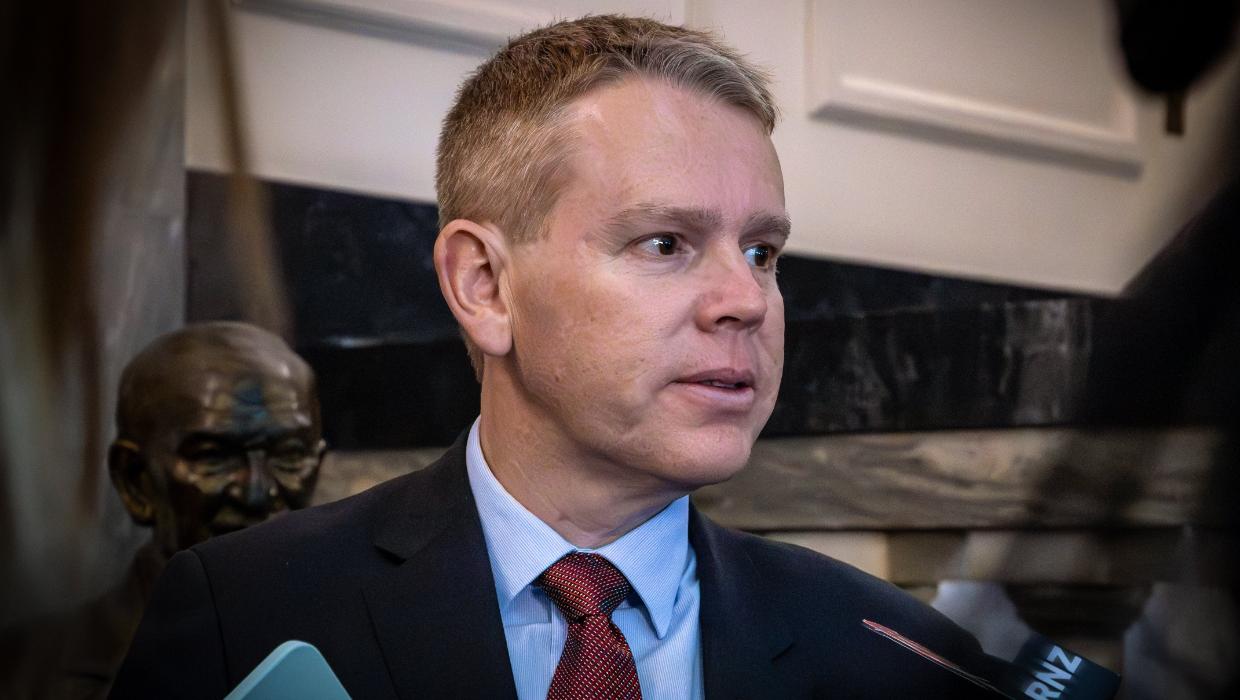Top Stories
Hipkins Defends Government Spending Amid Treasury Criticism

Chris Hipkins, leader of the Labour Party and Prime Minister of New Zealand, has publicly dismissed recent claims from Treasury officials that the previous government overspent during the Covid-19 pandemic. This analysis, which suggests significant financial mismanagement, has sparked a debate over the fiscal decisions made during a time of crisis.
According to the Treasury’s report, expenditures during the pandemic exceeded initial projections by a substantial margin. The analysis indicates that the government spent approximately $62 billion on various Covid-19 related initiatives, including health measures and economic support packages. Critics argue that this level of spending could have long-term implications for New Zealand’s economic stability.
In response to this critique, Hipkins stated, “The measures we implemented were necessary to protect New Zealanders during an unprecedented global health crisis.” He emphasized that the spending was aimed at providing essential support to citizens and businesses affected by the pandemic. Hipkins believes the investments made were justified, given the circumstances and the need to safeguard public health.
The Treasury’s findings have ignited discussions within political circles, with opposition parties seizing upon the report to question the government’s financial stewardship. The National Party, in particular, has called for a thorough review of the spending practices employed during the pandemic, arguing that accountability is crucial in the current economic climate.
Impact on New Zealand’s Economy
The implications of the Treasury’s assessment are significant. New Zealand’s economy has shown signs of recovery, but concerns remain regarding inflation and public debt levels. The government has indicated that it will take a cautious approach moving forward, balancing fiscal responsibility with ongoing support for economic recovery.
Hipkins highlighted the importance of the pandemic response, noting that without the measures taken, New Zealand’s economy could have faced a much more severe downturn. “We had to make tough decisions, and those decisions saved lives and livelihoods,” he added.
The debate surrounding government spending during the pandemic reflects broader tensions in New Zealand politics, as parties prepare for the upcoming elections in 2023. With the economy still recovering, voters will likely scrutinize the financial strategies of all major parties.
Looking Ahead
As New Zealand navigates the post-pandemic landscape, the government’s fiscal policies will remain a focal point. The Labour Party plans to continue its approach of supporting the economy while managing public finances sustainably. Hipkins’ leadership will be tested as he addresses both criticism from the Treasury and the expectations of the public.
In conclusion, while the Treasury’s report raises valid concerns about overspending, Hipkins maintains that the swift actions taken during the pandemic were essential for the nation’s health and economic stability. As New Zealand moves forward, the effectiveness of these decisions will be closely examined, shaping the future of the country’s political and economic landscape.
-

 World4 months ago
World4 months agoTest Your Knowledge: Take the Herald’s Afternoon Quiz Today
-

 Sports4 months ago
Sports4 months agoPM Faces Backlash from Fans During Netball Trophy Ceremony
-

 Lifestyle4 months ago
Lifestyle4 months agoDunedin Designers Win Top Award at Hokonui Fashion Event
-

 Entertainment4 months ago
Entertainment4 months agoExperience the Excitement of ‘Chief of War’ in Oʻahu
-

 Sports4 months ago
Sports4 months agoLiam Lawson Launches New Era for Racing Bulls with Strong Start
-

 World5 months ago
World5 months agoCoalition Forms to Preserve Māori Wards in Hawke’s Bay
-

 Health4 months ago
Health4 months agoWalking Faster Offers Major Health Benefits for Older Adults
-

 Lifestyle4 months ago
Lifestyle4 months agoDisney Fan Reveals Dress Code Tips for Park Visitors
-

 Politics4 months ago
Politics4 months agoScots Rally with Humor and Music to Protest Trump’s Visit
-

 Top Stories5 months ago
Top Stories5 months agoUK and India Finalize Trade Deal to Boost Economic Ties
-

 Health2 months ago
Health2 months agoRadio Host Jay-Jay Feeney’s Partner Secures Visa to Stay in NZ
-

 World5 months ago
World5 months agoHuntly Begins Water Pipe Flushing to Resolve Brown Water Issue









